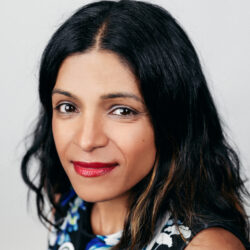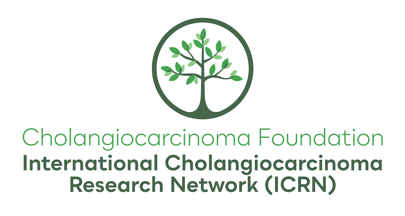Rachna Shroff, MD

Name
Rachna Shroff
Organization
University of Arizona Cancer Center
Can you tell us a bit about yourself?
I am the Chief of GI Medical Oncology at the University of Arizona Cancer Center (UACC) where my clinical and research interests focus on biliary and pancreatic cancers. I also serve as the Director of UACC's Clinical Trials Office. I was previously on faculty at MD Anderson Cancer Center where I helped grow a prolific biliary research program with a robust clinical trial portfolio. Since joining UACC, I have helped grow the GI research program and have enjoyed building collaborations across the institution to grow translational research efforts. I am committed to improving outcomes for patients with pancreaticobiliary cancers and enjoy watching drug development blossom for my patients with cholangiocarcinoma. There is nothing more rewarding than holding our patients' hands through this journey and giving them hope as we see immense progress in these diseases.
Personally, I am happily married to a busy allergist on faculty at University of Arizona and we are kept busy raising two beautiful kids. We miss Houston, but have been enjoying the beautiful desert landscape and climate. We love to travel to new places (outside of global pandemics), I live to exercise for wellness, and dancing is my creative outlet.
Can you share one or two of your specific research interests?
My research interests focus on developing novel cytotoxic, targeted, and immune therapies for patients with biliary cancers and pancreatic cancers. I primarily engage in clinical trials but relish working with basic scientists to translate their discoveries into clinic.
Why did you decide to specialize in hepatobiliary cancers?
My focus in HPB cancers came from the clinic. Caring for patients with these diagnoses require committed researchers who are willing to think outside of the box, to advocate for research funding and to work collaboratively to improve outcomes. This is exactly what drove me into this space - a desire to impact patient care in a clinically meaningful way through scientific discovery and momentum. Giving hope to patients and watching the needle move forward is the most rewarding feeling for me as an oncologist.
Can you describe one of the unforgettable moments in your patients care or research that has impacted your career?
There are so many moments that help me keep my eyes on the prize. Taking a patient who was told that he/she had an incurable disease, putting them on a trial with a novel therapy, seeing a dramatic response and then taking them to a curative surgery is by far the most rewarding thing in my day-to-day. This is why I get out of bed every day - to see this progress happening in the clinic! For research, one unforgettable moment was when our national study, SWOG 1815 completed accrual in record time. This was an NCI-sponsored study and the first randomized phase 3 study in biliary cancers in the US. Being able to complete a study quickly to answer a meaningful question for this disease has been hands down one of the most rewarding moments in my research career.
Can you tell us one thing collaboration with colleagues could accomplish that you could not accomplish on your own?
The progress we have seen in understanding the molecular and immune landscape of cholangiocarcinoma is a perfect example of why collaboration is essential to eradicating this disease. We came together as researchers to learn about the importance of biomarker testing and its clinical relevance. This knowledge empowered us to launch clinical trials with targeted therapies that have led to FDA approvals in cholangiocarcinoma! None of this would have been possible if we, as researchers, did not come together to pool knowledge.
If you had access to one resource that would move your research forward, what would that resource be?
Funding! We are getting more and more funding dedicated to cholangiocarcinoma research (thanks in large part to advocacy from CCF), but we have so much more work to do! As we have come together as collaborators and built a repository of preclinical models, there are so many questions left to be asked and answered. More federal funding, philanthropic funding, and industry funding will drive us to progress. We have the momentum and we want to keep it going!
How did you learn about the Cholangiocarcinoma Foundation?
I have had the pleasure to be involved with CCF since (close to) the beginning. Being a junior faculty member at MD Anderson and working with Dr. Milind Javle, he introduced me early on to Stacie and CCF. It became readily apparent to me that this organization was going change the face of this disease and have a last impact. As such, I immediately began attending the national conference and getting to know other members. More recently, I have had the pleasure of chairing the 2020 National Conference and currently serve on the Scientific and Medical Advisory Board. I am so grateful to CCF to have them as a partner and as a force for our research in cholangiocarcinoma.
Can you tell us why you became a member of the ICRN?
I became a member of ICRN early on because I knew that to truly make an impact on this disease, researchers from all over the world would need to come together to ask important scientific questions. ICRN was a mechanism to bring US collaborators in close touch with our brilliant scientists in Europe, Asia, and beyond. Since joining, I have had the pleasure of working in the Immunotherapy Working Group and helping design novel questions in the space of immune-oncology. I also now serve on the Executive Committee and have enjoyed working elbow-to-elbow with international thought leaders to identify areas of focus for research that will have a global impact on cholangiocarcinoma.
